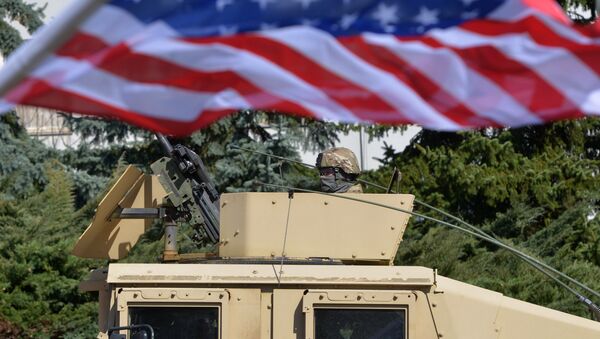General Gustave F. Perna told an audience at the US Army's Global Force Symposium that the country's military malaise stemmed from a dependence on contractors to sustain its combat units, a practice that grew significantly in use during the "War on Terror" fought since 2001.
Moreover, the focus on "counterinsurgency" battles during this period, against non-professional foes in "permissive" environments, has meant the military has potentially lost many of the skills necessary to fight wars in complex battlefields against professionally trained enemies.
"I believe we're not ready to execute a decisive action fight against a near-peer competitor. It's not because we don't have great leaders and soldiers who have been trained in the last 15 years, it's because the skills we need for sustainment have atrophied," said Gen. Perna.
US Army leaders are currently focused obsessed with the prospect of multi-domain conflict in the near-future. If and when it comes to pass, brigade combat teams and higher command structures will need to be engaged across land, sea, air, space, cyber and even electromagnetic domains.
"Will we be able to overcome the capability that eliminates a whole brigade while it's en-route from one US installation to the next fight? Can we project ourselves, can we receive ourselves and can we execute onward movement to the battlefield while there will be an enemy that will do everything in their power to stop us before we get there?" he asked.
As a result, the AMC is focused on ensuring "army prepositioned stocks" — caches of critical combat equipment stored in locations around the world — are "prepared and ready to go," Gen. Perna concluded.
Perna's comments coincided with President Donald Trump sending a proposed budget to Congress that eliminates the existing defense sequester (automatic spending caps) and cuts US$54 billion across all non-defense related departments.
Defense business reforms needed to help Army free up $ for modernization. Officials discuss concerns at #AUSAGlobal https://t.co/RNt49SVJJb pic.twitter.com/9SoYwa4NjI
— National Defense (@NationalDefense) March 14, 2017
While the budget includes a year-on-year boost to the defense budget of US$18.5 billion to US$578 billion, many in Washington are unhappy, believing the increase to be somehow insufficient; Republican Senator John McCain has said a total defense budget of at least US$640 billion is required to fully restore US military "readiness" — and at the same Symposium, Acting US Army Undersecretary Karl Schneider said the US Army has been forced to postpone around 120 programs because of fiscal uncertainty it faces.
Given the US defense budget is already by far and away the world's largest, with the country's spending currently accounting for 37 percent of the world's total (roughly the same amount as the next seven countries combined, and 2.77 times the size of second-placed China's on a per-dollar basis), some may question why there is any need at all for the US to spend more on defense.
Even allied governments have expressed concern about Trump's proposed defense increases.
It may be that Perna's stated fears of America's inability to engage in a "multi-domain" conflict is merely a smokescreen justification for the siting of yet more US military materiel and troops around the world — just as baseless claims of Russian expansionism have been used to justify a huge buildup of NATO forces along Russia's borders.
Similar potentially fantastical worries about the US and NATO losing naval dominance were used to support calls for significantly expanded naval spending in March by the London-based Royal United Services Institute.



